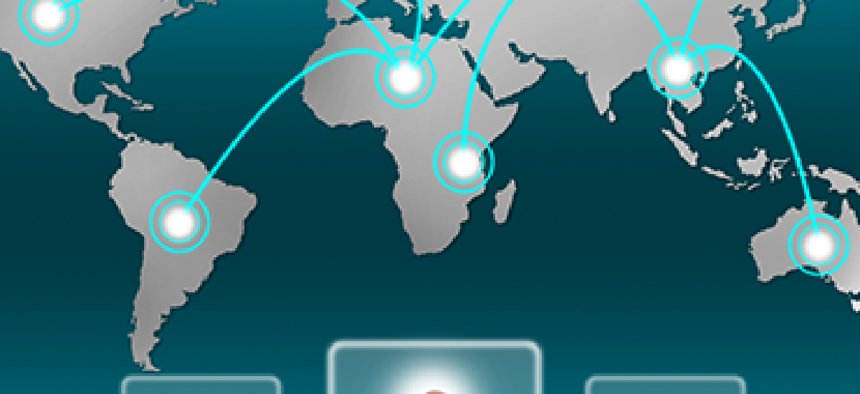Information dominance, health care secrecy and STIG approval

News and notes from around the federal IT community.

'Information dominance' a critical piece of Navy's 5-year budget plans
A summary of the Navy's budget plans for fiscal 2015-2019, released Aug. 19, underscores how important 'information dominance,' or securing and controlling communication networks, is to the military service. In everything from electromagnetic jamming to developing systems to detect insider threats, the Navy is emphasizing information dominance as one of its programmatic priorities in tight fiscal times.
The five-year summary of Navy fiscal priorities, dubbed a '2015-2019 Navigation Plan,' includes the following IT-related goals:
- Equip ships with "more capability to intercept signals and conduct information warfare." Add "jamming and deception capabilities to counter advanced anti-ship missiles."
- Improve cybersecurity by developing systems to detect and thwart insider threats and protect classified information.
- "Align" Navy networks with the Defense Department's Joint Information Environment by installing Consolidated Afloat Networks and Enterprise Services on combatants and at Maritime Operation Centers. CANES consolidates legacy Navy networks into one.
- Implement ashore the Next Generation Enterprise Network, an acquisition vehicle for enterprise network services.
The Navigation Plan also sets goals for Navy personnel in charge of cybersecurity. The service is creating a single authority to handle cybersecurity for service-wide networks, platforms and systems.
And, much as the Army is mulling a cyber-specific branch, the Navy recently established a specific command, the Navy Information Dominance Forces Command, which will be operational in October.
HealthCare.gov security plan to remain secret
The Centers for Medicare and Medicaid Services is not disclosing documents related to the security plan for HealthCare.gov because, they say, publicizing the plans could give hackers opportunities to "potentially" break in.
The Associated Press requested the documents under the Freedom of Information Act in 2013, after Republicans in Congress raised concerns about the pre-launch security of the HealthCare.gov system. The AP is appealing the FOIA denial, and noted in a news article that President Barack Obama issued open government guidance in 2009 instructing agencies not to withhold requested information "merely because public officials might be embarrassed by disclosure, because errors and failures might be revealed, or because of speculative or abstract fears."
Good Technology earns STIG approval for iOS7
The Defense Department approved mobile platform provider Good Technology's Secure Technical Implementation Guide for selling products that run on the iOS7 operating system to DOD clients, the Sunnyvale, Calif.-based vendor announced Aug. 20.
The STIG handed out by the Defense Information Systems Agency will cover Good Technology products for mobile device management, mobile email management and mobile application management, the firm said.


